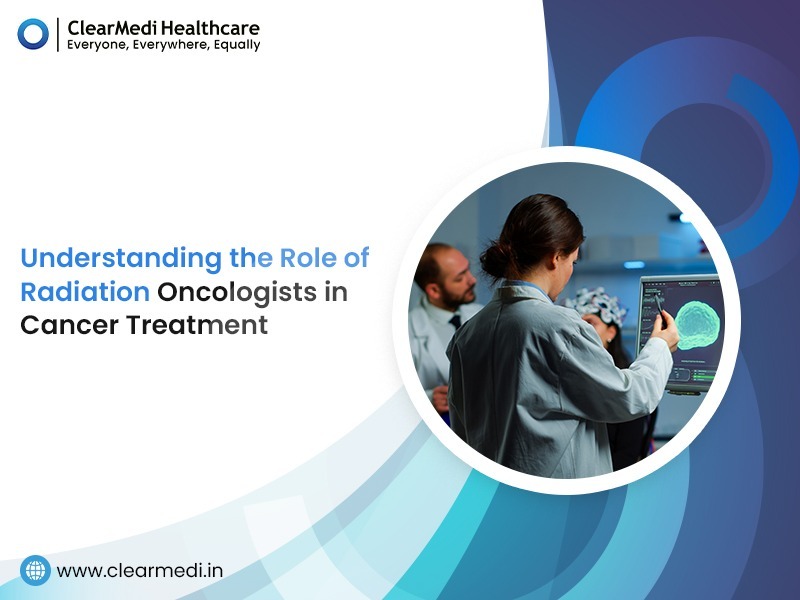The Greatest Guide To Arogyajivan Medical Tourism For Oncology
The Greatest Guide To Arogyajivan Medical Tourism For Oncology
Blog Article
9 Simple Techniques For Arogyajivan Medical Tourism For Oncology
Table of Contents9 Simple Techniques For Arogyajivan Medical Tourism For OncologySome Known Factual Statements About Arogyajivan Medical Tourism For Oncology Not known Facts About Arogyajivan Medical Tourism For OncologyArogyajivan Medical Tourism For Oncology - An OverviewArogyajivan Medical Tourism For Oncology Things To Know Before You BuyArogyajivan Medical Tourism For Oncology Fundamentals ExplainedAbout Arogyajivan Medical Tourism For Oncology
If you have cancer cells, your healthcare supplier will recommend several methods to treat the disease. One of the most usual therapies are surgery, chemotherapy, and radiation. Various other options consist of targeted treatment, immunotherapy, laser, hormonal treatment, and others. Here is an overview of the various treatments for cancer cells and exactly how they work.Cancer cells grow and separate faster than normal cells in the body. Because radiation is most hazardous to rapidly growing cells, radiation treatment problems cancer cells much more than typical cells. It makes use of materials made by the body or in a lab to help the immune system work harder or in a more targeted means to battle cancer.
Some have toxic substances or radioactive materials affixed to them. Immunotherapy is provided by IV. Hormonal agent treatment is used to treat cancers cells that are fueled by hormones, such as bust, prostate, and ovarian cancers. It makes use of surgical procedure, or medicines to stop or obstruct the body's natural hormones. This assists slow down the development of cancer cells.
Slim fibers at the end of the tube direct the light at the cancer cells. Lasers are most usually used with various other kinds of cancer therapy such as radiation and chemotherapy.
What Does Arogyajivan Medical Tourism For Oncology Do?

An oncologist is a cancer cells doctor. Marketing on our website aids support our mission. A visit to an oncologist offers you a possibility to speak with an expert who recognizes what you're going through.
They're ready to assist, and they'll stroll with you every step of the means. An oncologist gets included if you have symptoms that may be cancer cells.
What Does Arogyajivan Medical Tourism For Oncology Mean?
The sooner you get a medical diagnosis, the far better. Numerous cancers are a lot more treatable in the onset. Cancer is a complicated illness. Individuals with cancer cells typically require numerous oncologists on their medical care group. This multidisciplinary approach permits each specialist to focus on a different area of your treatment with an usual goal of joint, caring care - ArogyaJivan Medical Tourism for Oncology.
The majority of medical oncologists likewise focus on hematology (the medical diagnosis and treatment of blood conditions and blood cancers cells). These doctor make use of radiation treatment to deal with cancer. Radiation can diminish lumps before surgery or kill continuing to be cancer cells after surgical procedure. You could have radiation as a stand-alone therapy or in mix with various other therapies.
6 Easy Facts About Arogyajivan Medical Tourism For Oncology Shown
Do I have cancer cells? For how long have I had it? What will my life resemble now? If these are the inquiries racing with your mind, you're not alone. Your oncologist is below to aid you navigate these feelings. During your very first check out, your oncologist will: Ask you to describe your signs in detailDo a checkupEvaluation your medical documents, consisting of family history and any type of previous or existing wellness conditionsRun any kind of necessary examinations (like imaging tests or lab work) to read more about your symptomsDetermine whether you need a biopsyWhen your oncologist collects the details they need, they'll: Talk about the results of your testsSend their searchings for to the healthcare supplier that referred youTell you whether you have cancer cells and if so, what kindTalk to you concerning various therapy optionsListen to your problems and anxietiesGive you sources that can supply assistance and additional informationYour first oncology go to may use up to 3 hours.
Oncology is the study of cancer cells. Professionals trained in oncology give treatment for individuals who are at threat for cancer cells, being treated for cancer cells, and living with cancer after therapy.

Rumored Buzz on Arogyajivan Medical Tourism For Oncology
treat cancer cells in children and teens. Some kinds of cancer cells occur usually in these younger age. When these kinds of cancer try this site cells occasionally happen in grownups, those grown-up people might pick to deal with a pediatric oncologist. treat cancers cells inside the upper body location, consisting of the lungs and esophagus. ArogyaJivan Medical Tourism for Oncology. treat cancers in the genitourinary system, such as the bladder, kidneys, penis, prostate gland, and testicles.

In some instances, a medical oncologist could be the first expert a person sees. Sometimes when cancer is thought but not detected, an oncologist could also be included. Some individuals with blood problems that might or might not be cancerous may be described a hematologist oncologist. Lots of people will continue seeing their oncologist for follow-up visits to look for signs of cancer cells returning and to handle any type of side effects from treatment.
The Buzz on Arogyajivan Medical Tourism For Oncology
If you have a cancer medical diagnosis and are considering your treatment choices, take into consideration participating in a clinical test. Although they may appear intimidating at initially, scientific tests can be very advantageous regardless of what kind or phase of cancer you have. Benjamin Levy, M.D., medical director of the Johns Hopkins Kimmel Cancer Center at Sibley Memorial Healthcare facility and a lung cancer cells scientist, describes a see here now few of the factors to sign up with a medical test.
Report this page